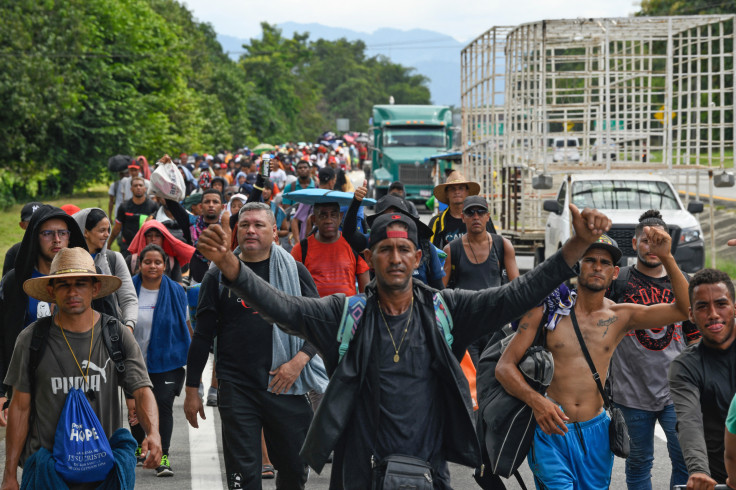
As president-elect Donald Trump's immigration and border policies continue to be fleshed out, migrants seeking to reach the country are already making consequential decisions before he takes office. On the one hand there are undocumented immigrants living in the country, whose fate remains uncertain amid plans of mass deportations.
On the other hand, as some reports have laid out, there are those waiting on the other side of the border, even as they await already-scheduled appointments for asylum interviews through the CBP One app.
And lastly there are those further south who still hold hopes of reaching the U.S.-Mexico border before inauguration day. As El País reported on Wednesday, a new migrant caravan made up of around 1,500 people set out this week from the southern border of Mexico, in Tapachula, Chiapas.
However, the outlet also reports that, as attempts from caravans to reach the border increase, so too have attempts by Mexican authorities to break them up, leaving migrants at a crossroads and pushing many to consider returning to their native countries in frustration.
A Reuters report, also published on Wednesday, takes a deep dive into many of these migrants' plight, including Nidia Montenegro, a 52-year-old Venezuelan migrant who is among those awaiting an appointment to cross legally. Fearing cartel violence in Mexico, she says she may return to Venezuela if she cannot secure an appointment before Trump's inauguration.
"I am traumatized. If I don't get the appointment, I will go back," she said, disheartened.
Her experience reflects the dangers migrants face, including kidnappings and extortion. Montenegro and two nephews were abducted upon arriving in Mexico but escaped after two days. Now confined to a shelter in Chiapas, she says she feels unsafe.
Migrants traversing Mexico risk encountering extensive human trafficking networks. Violence, including assaults, sexual exploitation, and murder, has made the journey north treacherous as the country records approximately 30,000 murders annually, with over 100,000 people officially reported missing.
Some migrants consider returning to their home countries despite the political and economic crises that drove them to leave. The International Organization for Migration told Reuters that it has facilitated voluntary returns for several thousand migrants in recent years, though exact figures remain undisclosed. A Venezuelan official told the news outlet that 50 to 100 migrants voluntarily request to return each week from Mexico, citing cases of violence and exploitation.
However, many remain determined to reach the U.S., whether through caravans, human traffickers, or the hope of a U.S. government appointment.
© 2024 Latin Times. All rights reserved. Do not reproduce without permission.








